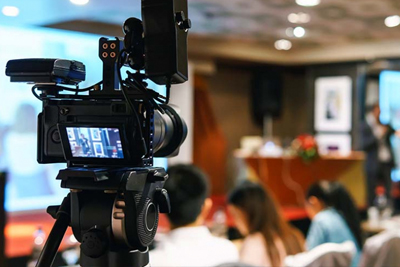
Objective: Understand the role and importance of media training.
Overview of Media Training
- Definition and purpose of media training
- Importance of effective communication in media
- Overview of media platforms (traditional, digital, social media)
Setting Goals
- Individual and organizational goals for media training
- Developing a personal media strategy
Media Landscape
- Understanding different types of media outlets
- Media industry trends and changes
Objective: Craft and articulate clear, compelling messages.
Crafting Key Messages
- Identifying core messages
- Creating message frameworks
- Aligning messages with organizational goals
Storytelling Techniques
- The art of storytelling in media
- Structuring stories: Beginning, Middle, End
- Using anecdotes and examples effectively
Messaging Consistency
- Maintaining consistency across different platforms
- Adapting messages for different audiences
Objective: Enhance skills for handling media interviews effectively.
Interview Preparation
- Researching the interviewer and media outlet
- Preparing and practicing key points
- Anticipating and preparing for tough questions
Conducting Effective Interviews
- Techniques for staying on message
- Handling challenging questions
- The importance of body language and tone
- Bridging and steering techniques
Mock Interviews
- Conducting simulated interviews
- Receiving and incorporating feedback
- Analyzing performance and areas for improvement
Objective: Develop strong presentation skills for media appearances.
Presentation Design
- Creating impactful slides and visuals
- Organizing content effectively
Public Speaking Techniques
- Voice modulation and clarity
- Engaging the audience
- Managing nervousness and building confidence
Practice and Feedback
- Conducting mock presentations
- Reviewing and refining delivery
- \Using video recordings for self-assessment
Objective: Master the use of social media for personal and organizational branding.
Social Media Platforms
- Overview of major platforms (Facebook, Twitter, LinkedIn, Instagram, etc.)
- Platform-specific strategies
Creating Engaging Content
- Crafting compelling posts and updates
- Using multimedia (images, videos, infographics)
- Timing and frequency of posts
Handling Social Media Interactions
- Responding to comments and messages
- Managing negative feedback and crises
- Building and maintaining an online presence
Objective: Prepare for and manage communication during a crisis.
Crisis Communication Planning
- Developing a crisis communication plan
- Identifying potential crises and risks
Managing a Crisis
- Key principles of crisis communication
- Communicating transparently and effectively
- Case studies of successful and unsuccessful crisis management
Post-Crisis Evaluation
- Reviewing the crisis communication process
- Learning from the experience and improving future strategies
Objective: Understand and apply ethical principles in media interactions.
Media Ethics
- Understanding media ethics and standards
- Navigating conflicts of interest
Legal Considerations
- Overview of legal issues related to media (libel, privacy, intellectual property)
Ethical Decision-Making
- Applying ethical principles in media situations
- Case studies and discussions
Objective: Assess training effectiveness and plan for ongoing development.
Evaluation Methods
- Assessing individual and group performance
- Gathering feedback from participants
Continuous Improvement
- Identifying areas for further development
- Setting goals for ongoing media training
Resources and Support
- Providing resources for continuous learning
- Accessing additional training and support
Implementation Timeline
Week 1: Introduction and Key Messaging
Week 2: Media Interview Skills and Presentation Skills
Week 3: Social Media Training and Crisis Communication
Week 4: Ethical Considerations and Evaluation
Delivery Methods
- Workshops: Interactive sessions with group activities and role-playing.
- Seminars: Informative sessions with guest speakers and expert insights.
- Online Modules: Self-paced learning through video and interactive content.
- One-on-One Coaching: Personalized sessions for individual feedback and development.
Resources
- Training Materials: Handouts, slides, and reference guides.
- Media Kits: Sample press releases, media contact lists.
- Assessment Tools: Evaluation forms, feedback surveys, performance metrics.
By following this program, individuals can enhance their media skills, improve their confidence, and effectively represent themselves or their organization in various media contexts.
